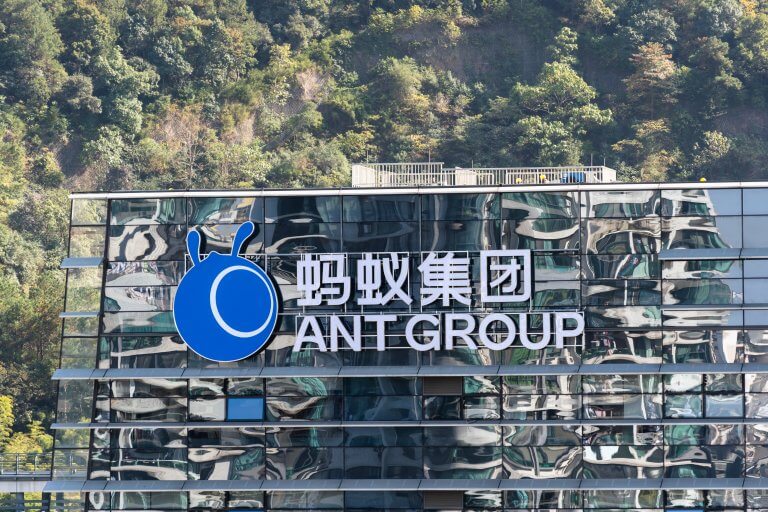Ant Group’s woes a boon for established insurers
February 8 2021 by Raymond Barrett
With Ant Group soon to be subject to the same oversight as traditional banks, established insurers in China are likely breathing a sigh of relief that a would-be digital disrupter has been brought to heel.
Several media outlets reported this week that Ant Group, formerly known as Ant Financial, had “agreed” to restructure its credit, investment and insurance operations into a financial holding company to resolve an ongoing saga with the China Banking and Insurance and Regulatory Commission (CBIRC).
The regulator shot down the high-flying digital payment giant’s IPO in November over fears that a lightly regulated lender with access to a billion potential customers posed a systemic risk to the Chinese economy.
Jack Ma’s Alibaba and its subsidiary Ant Group had grown so quickly precisely because Beijing had exercised a light touch, but going forward the fintech giant will be subject to the same capital requirements as banks.
Ant has been building out its insurance business in recent years through its Alipay platform, mostly through the distribution of products offered by partner insurers. Ant is estimated to hold around 13% of the online insurance market and its Xiang Hu Bao mutual aid platform — which offers health protection to lower income people, especially in rural areas — is believed to have signed up at least a 100 million customers since it was launched in 2018.
The fact that the Chinese government became unwilling to tolerate a digital maverick moving into a traditionally conservative sector suggests that insurance start-ups who take a loose approach to risk management may also suffer a similar fate.
Speaking at the Asian Financial Forum this January, CBIRC chairman Guo Shuqing noted that the financial sector will be subject to “prudential regulation” in the years ahead. In addition, with the deadline for implementation of the new IFRS 17 regime fast approaching, the regulatory burden facing the insurance sector is only set to increase.
Therefore, well-capitalised insurers with extensive internal compliance and control systems may be less likely to face sudden competition from digital giants such as Tencent, Ant or smaller insurtechs.
This is likely a relief to more “old school” insurers who rely on antiquated relics such as human beings to distribute their products — insurers still employ hundreds of thousands of agents across China.
In what may be a prescient sign of the road ahead, Yin Ming, the head of Ant’s insurance unit, resigned last month after five years on the job amid uncertainties over the direction of the business.
His destination? The Beijing-based Sunshine Property and Casualty Insurance.
How very old school.
-
Opinion: Specialty market set to be tested in the fire once again as Iran escalation evokes memories of Gulf War
- June 20
Conflict between Israel and Iran is bringing back memories of the Gulf War, which was seen a key testing ground for the resolve of the marine market, with numerous attacks on ships.
-
Opinion: Without a captain of the ship, are India’s insurance reforms in danger of being blown off course?
- May 20
As the sector enters a 'seminal period of transformation', the Insurance Regulatory and Development Authority (IRDAI) has been without a chairman for over two months after Debasish Panda completed his three-year term in March.
-
Opinion: With great expectations, will India’s growing but potentially vulnerable surety bond sector avoid the mistakes of past markets?
- May 9
Decision by India’s regulator to allow insurers to write surety bonds goes hand-in-hand with a booming construction sector.
-
Is the tide finally turning for (re)insurers in China as aviation, rail ambitions grow?
- May 5
Encouraging moves by domestic manufacturers offer promising opportunities as the fall out from Donald Trump’s trade war continues.
-
Allianz General | Allianz General combines innovative protection solutions while powering social good to lead Malaysian market
The carrier proactively addresses emerging risks and evolving customer protection needs while giving back to the community.
-
Sedgwick | Asia’s Energy Transformation – Balancing Growth, Risk and Renewables
Energy market presents unique risks, especially in a region which includes China and Japan as well as developing nations like Vietnam and the Philippines.
-
Beazley | Turbulent Waters: the maritime energy transition challenge
Businesses are facing a complex transition to non-carbon energy sources amid a push to achieve net-zero emissions for the marine sector by 2050.
-
Aon | Navigating shifts in the global and Asia insurance markets
Neelay Patel, Aon head of growth for Asia, says the market in Asia is at an ‘interesting stage of the cycle’.

